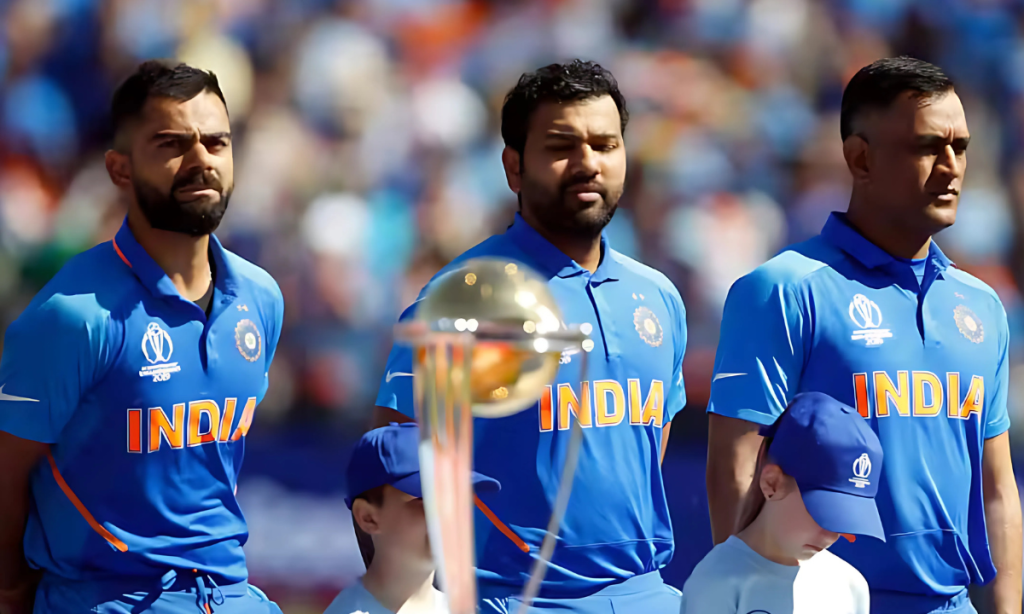In the world of cricket, where every run counts and every match can define a career, the dynamics of selection and team management often come under scrutiny.
Manoj Tiwary, a former Indian cricketer who has now transitioned to politics, has recently shed light on a pivotal moment in his career that left him questioning the fairness of selection processes under iconic captain MS Dhoni.
Manoj Tiwary, in an interview with Lallantop, dissected the influence of team captains on player selection, drawing parallels from eras of Kapil Dev, Sunil Gavaskar, Mohammad Azharuddin, and Sourav Ganguly.
He stated, “He was the captain. Team India runs according to the planning of the skipper. In state teams, things are different but in Team India its all about the captain.”
This statement encapsulates the hierarchical structure of Indian cricket where the captain’s word often holds significant sway over team composition.
Manoj Tiwary On MS Dhoni
Tiwary’s career, marked by consistent performance in domestic cricket, hit an unexpected snag when, after scoring a century in an ODI against West Indies in 2011, he was benched for an astonishing 14 matches.
This period, he noted, was particularly frustrating because it coincided with a time when established players like Virat Kohli, Rohit Sharma, and Suresh Raina were not performing up to expectations.
“The players who were in the team then were Virat Kohli, Suresh Raina, Rohit Sharma. After that the Tour which took place, they were not making runs. And here I was, even after making a century and winning Player of the Match, could not find a place in playing XI,” Tiwary explained, highlighting the disparity in treatment.
The exclusion wasn’t just a professional setback; it was a psychological blow.
“If a player is dropped after scoring a century, obviously I want to know the answer. After century I was praised, but post that I did not have any inkling,” Tiwary confessed.
The fear of repercussions in an environment where questioning could lead to ostracization added another layer of complexity to his situation.
“At that time, youngsters used to feel afraid, including me. If you ask something, who knows what way it could have been taken. Career is on the line,” he added, drawing back the curtain on the unspoken pressures within the team.
The Power of the Captain
The narrative around Tiwary’s exclusion brings into focus the broader issue of captaincy in cricket, where the captain’s role transcends mere game strategy to influence selection, player morale, and even careers.
The captain’s decisions can make or break a player’s journey, and in this case, Tiwary felt the brunt of what he perceived as an unjust call.
His critique isn’t just about personal grievance but points to a systemic issue where the balance of power might tilt too heavily towards one individual.
A Call for Change
Tiwary’s reflections also touch on the need for structural changes within cricket’s administrative framework.
He praised Ajit Agarkar, the current BCCI chief selector, for his potential to bring about a change through a more balanced approach to selection.
“You see Ajit Agarkar (current BCCI chief selector) and you feel he can take strong decisions. He can disagree with the coach,” Tiwary observed, suggesting a hopeful shift towards a system where decisions are not solely in the hands of the captain but are also influenced by administrative oversight.
The Human Cost
Beyond the game, Tiwary’s ordeal reflects the human cost of sports where careers are not just jobs but are life-defining journeys.
His contemplation of retirement due to this exclusion, only held back by family responsibilities, paints a picture of the emotional and professional toll such decisions can take on players.
The narrative isn’t just about cricket but about the resilience required to navigate through such adversities.
In Summary
Manoj Tiwary’s revelations provide a rare glimpse into the complexities of cricket at the highest level.
His experience underlines the need for transparency, accountability, and perhaps, a reevaluation of how much power one individual like a captain should wield over others’ careers.
As Indian cricket continues to evolve, stories like Tiwary’s serve as critical lessons in leadership, fairness, and the human spirit’s endurance in the face of bureaucratic challenges.

